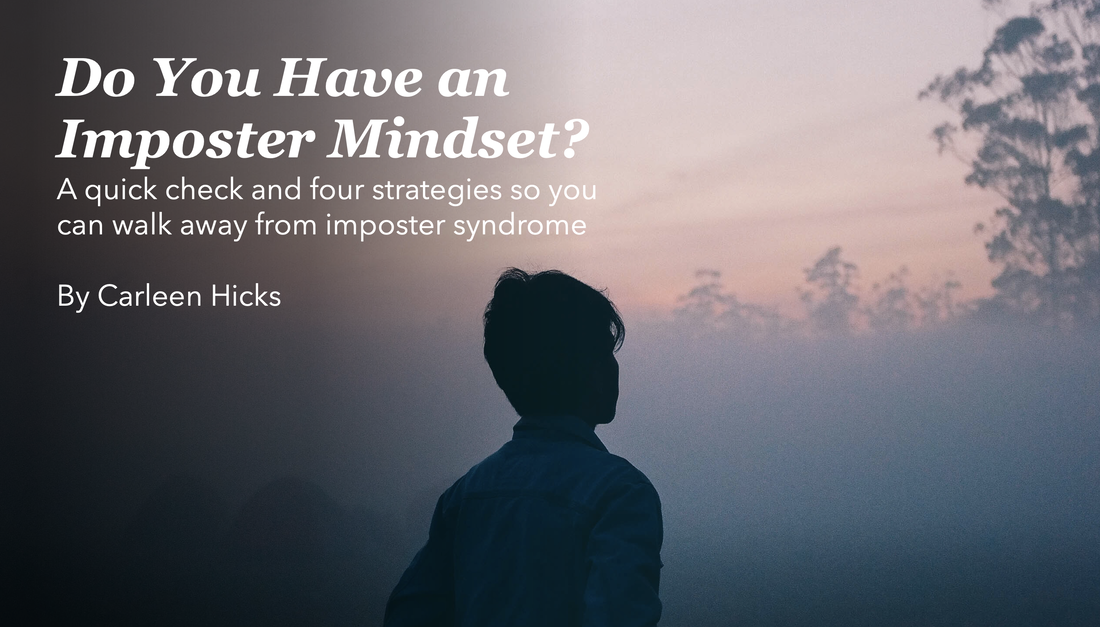|
Name something you know you are good at, AND you feel your employer sees too. If nothing comes to mind, you may be experiencing imposter syndrome. Imposter syndrome includes feeling inadequate based on the belief you got where you are in your work and career by luck and don’t really deserve to be there. In short, you have no meaningful connection to your talent or qualifications. And you are not alone. A whopping 70% of people feel this way at some point in their career. Which explains why there is enough of a “sample size” to see 5 distinct types of “imposters”. Dr. Valerie Young, author of The Secret Thoughts of Successful Women: Why Capable People Suffer from the Impostor Syndrome and How to Thrive in Spite of It, has defined them as:
See anyone you know? There are many reasons for feeling like you don’t belong in your job, not all of them have to do with your workplace. It can start in childhood with parental expectations, or because you are facing new challenges (like pursuing higher education), people from marginalized groups are also at a higher risk for imposter syndrome. What is clear is how it impacts your well-being. Feeling like a fraud leads to frustration, anxiety, depleted self-confidence, which can turn into depression and other long-term impacts to your health and welfare. Nonexistent coping strategies perpetuate imposter syndrome, and over time the effects to your self-esteem snowball until you don’t pursue promotion and opportunities to grow your expertise, or you expect perfection from yourself (constantly chasing it). The end result is you don’t feel you measure up because you set yourself up to never measure up. There’s some good news, imposter syndrome isn’t a medical diagnosis, it is a mindset, which means there are things you can do right now to work with feelings of inadequacy so they don’t run the show. Here are four strategies to recognize, and work with, imposter syndrome:
There will always be times when you think negatively of yourself or your performance at work. See what you can do to observe this thought, rather than believe it is accurate. Take a pause to see how that thought is sabotaging your self-esteem to recognize, and step away from, feelings of imposter syndrome. Would you like to see an example? This is how I ditched imposter syndrome.
0 Comments
Your comment will be posted after it is approved.
Leave a Reply. |
|
|


